Archives
GreenLight blog: Product Liability is the Wrong Standard for Self-Driving Cars
ITS-Davis Director Dan Sperling Brings Lessons from California Policy to the U.S. Congress
By Seth Karten
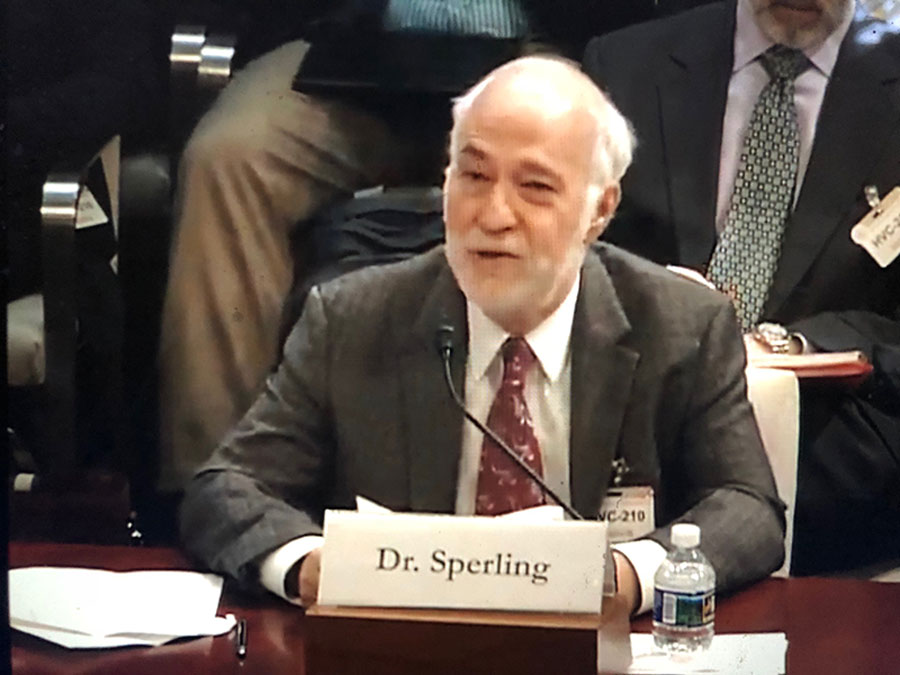
On Tuesday, February 26, ITS-Davis’ founding director and California Air Resources Board (CARB) member Daniel Sperling was the first to testify on one of two panels before the U.S. Congressional House Committee on Transportation & Infrastructure at a hearing entitled “Examining How Federal Infrastructure Policy Could Help Mitigate and Adapt to Climate Change.” Dr. Sperling shared his “experiences from California” and “insights from over 30 years studying the transportation system of this country.”
Throughout his testimony, Dr. Sperling identified policy strategies for promoting more environmental, equitable, and efficient transportation in ways that support the economy and promote innovation without necessarily burdening taxpayers. He said, “The point of this hearing and my testimony, is to address the goal of aligning transportation spending with environmental goals—as well as with social goals.”
In his opening comments, he highlighted how the current transformative revolutions in transportation—electrification, automation, and shared mobility—present government with the challenge and opportunity to “refocus and restructure how we fund and manage our transportation system, such that we direct these many innovations toward the public interest.” A key role for government in supporting innovations is to support “pilot and demonstration programs” to enable necessary experimentation.
Other members on the panel included Vicki Arroyo, of the Georgetown Climate Center; Thomas P. Lyon, of the Stephen M. Ross School of Business, University of Michigan; Ben Prochazka, of the Electrification Coalition; and Nancy Young, from Environmental Affairs at Airlines for America. Ms. Arroyo, whose organization has partnered with ITS-Davis on several events and initiatives, spoke about how multiple states and cities have implemented programs that are “promoting adoption of cleaner vehicles and fuels, improving public transportation, and enacting pathways to fund clean transportation innovation.”
After opening remarks from each of the five panel members, congressional members asked questions and spoke about their concerns over a two-and-a-half-hour period. During this Q & A, Dr. Sperling responded to questions posed by representatives including Julia Brownley (D-CA), Mark DeSaulnier (D-CA), Alan Lowenthal (D-CA), Pete Stauber (R-MN), Lizzie Fletcher (D-TX), Abby Finkenauer (D-IA), and Salud Carbajal (D-CA), who recognized Dr. Sperling for his “testimony and leadership on reducing greenhouse gas emissions.”
In responding to questions, Dr. Sperling highlighted California’s policies and programs that could inform federal policies to promote sustainable transportation. For example, he described how the California Cap and Trade Program “funds probably $1B per year in clean transportation and is also used for affordable housing near transit stations and the greening of communities to reduce emissions—with no taxpayer money.”
Dr. Sperling was also asked about his recommendations regarding “carrots and sticks” in policies to promote sustainable transportation, such as the Sustainable Communities and Climate Protection Act (SB 375). He emphasized the importance of carrots: “We need to reward communities that invest in putting in more chargers, bike lanes, transit, etc., because they don’t have the resources.” He added: “That is my biggest plea, to somehow restructure transportation funding so it acknowledges and rewards these environmental goals as well as the vehicle-miles travelled goals.”
Click on the following links to view: video footage of the entire hearing and Dr. Sperling’s written testimony and opening statement.
Seth Karten is a science writer for the Institute of Transportation Studies at UC Davis.
UC Davis Goes to Washington: Researchers Bring Transportation Expertise to Capitol Hill
ITS-Davis Researchers Are Bringing the Sustainable Transportation Revolution to the Nation’s Capital at TRB
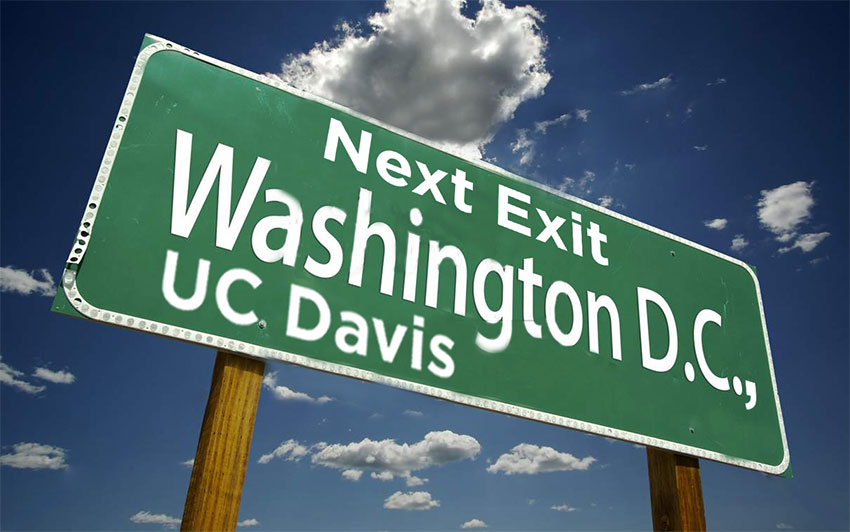
The Institute of Transportation Studies at UC Davis (ITS-Davis) will be a major presence at the 98th meeting of the Transportation Research Board (TRB) in Washington, D.C. from Jan. 13-17, 2019 with faculty and students represented at many program sessions and honorees recognized at award ceremonies. Additionally, ITS-Davis will host its popular annual reception and legislative briefings on Capitol Hill.
Nearly 60 ITS-Davis academic and research faculty and students from the Transportation and Technology Policy (TTP) graduate program are participating in the conference. Faculty will preside over TRB committee and meetings, and faculty and students will present their research findings at workshops, lectern sessions, and poster sessions. Their presentation topics will cover a wide range of topics from the local to the global, investigating the current revolutions in transportation that are a hallmark of today’s innovative ITS-Davis research. View a complete list of ITS-Davis presenters and presiders and the sessions in which they’re participating.
Two ITS-Davis/TTP faculty members will also be presented with awards at TRB-week events.
- Dan Sperling, Distinguished Blue Planet Prize Professor of Civil Engineering and Environmental Engineering and Environmental Science and Policy, and founding Director of ITS-Davis, will be presented with the annual 2018 Roy W. Crum Award at the TRB Chairman’s Luncheon on Jan. 16. The award recognizes outstanding leadership in transportation research or research administration. As described in the award announcement, Dr. Sperling is “recognized for his distinguished achievements in transportation research in the areas of energy, air quality, climate change, and policy; as well as for the research achievements of the many students he has mentored.”
- UC Davis Assistant Professor of Civil and Environmental Engineering Miguel Jaller will be presented with the 2018 Cambridge Systematics New Faculty Award from the Council of University Transportation Centers, at the Council’s Annual Awards Banquet on Jan. 12. The award is given annually to a tenure track faculty member in transportation education who demonstrates “outstanding teaching and research contributions to the transportation field,” as well as public service.
ITS-Davis will continue its longstanding tradition of hosting a TRB reception, with the opportunity to meet with faculty, students, alumni, and friends. The reception-celebration will be held on Jan. 15 at 8 p.m. in Shaw Ballroom, Courtyard by Marriott, Washington Downtown/Convention Center, 901 L Street NW, Washington, DC 20001. No RSVP is required and light refreshments will be served.
ITS-Davis also will be hosting two Capitol Hill research briefings:
- On Jan. 16, 11:45 a.m.–1:30 p.m. a briefing entitled “The 3 Revolutions in Transportation: Governance Needs & Opportunities”— at the Rayburn House Office Building and is hosted by the UC Davis Policy Institute for Energy, Environment, and the Economy along with the 3 Revolutions Future Mobility Program at ITS-Davis. Register here.
- On Jan. 17, 12:30–1:30 p.m. a briefing entitled “Research Highlights from the National Center for Sustainable Transportation: Better Governance Through A Strong Workforce and Effective Incentives” — at the Dirksen Senate Office Building. Register here.
Learn about Opportunities to Study or Work at ITS-Davis
With so many faculty, students, and alumni gathered in D.C., TRB offers a great opportunity to find out firsthand about the renowned Transportation Technology and Policy (TTP) Graduate Program, hosted by ITS-Davis, as well as transportation postdoctoral research position opportunities that are available at ITS-Davis in our STEPS+ Program.
Professor Susan Handy, TTP’s faculty director, and Dr. Gil Tal, TTP’s graduate advisor for recruitment and admissions, will be in D.C. for the TRB annual meeting. Other faculty, students, and alumni at the meeting can provide their unique insights and describe their experiences in transportation study and research at UC Davis while pursuing their M.S. and Ph.D. degrees.
In addition, ITS-Davis Graduate Program Coordinator, Annemarie Schaaf, will be at the Careers in Motion Networking Fair, Sunday, January 13, 10:00 a.m. to 2:00 p.m. On, Jan. 14–15 she will also be in D.C. and available for in-person meetings. Contact her at aschaaf@ucdavis.edu with questions or to set up an appointment.
Several postdoctoral research positions are currently available at ITS-Davis, with the Sustainable Freight Research Center, the Energy Futures Program, and the 3 Revolutions Future Mobility Program.
ITS-Davis Representatives Prominent at China’s International Congress on Smart Shared Mobility
UC Davis economist and fellow researchers find major flaws in analysis justifying rollbacks in vehicle fuel economy standards
By Seth Karten
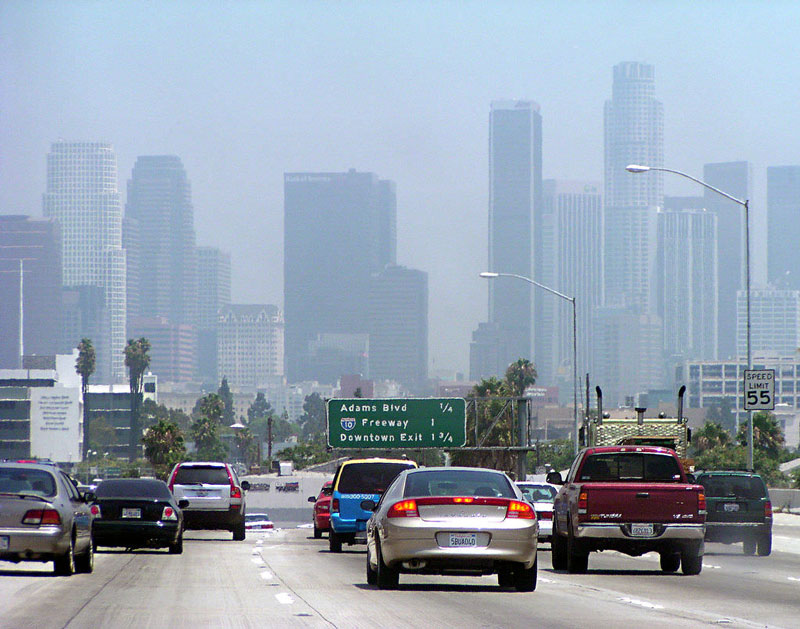
A study published on December 7 in the journal Science and co-authored by UC Davis Associate Professor of Economics David Rapson identifies significant problems with the analysis by Trump administration federal agencies to justify proposed rollbacks of the Corporate Average Fuel Economy (CAFE) standards. According to the Science study, the cost-benefit analysis described in the administration’s 2018 Notice of Proposed Rulemaking (NPRM) is deeply flawed, as it deviates from “existing research and basic economic principles.”
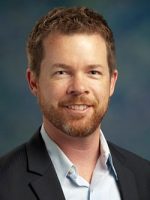
David Rapson, Ph.D., Associate Professor of Economics at UC Davis and co-author of the Science study.
Rapson said, “We have to be careful in the ways that we justify the policies that we propose, implement, and spend billions of dollars to support. In this case, we [the authors of the article] do not think that the NPRM met an acceptable threshold for rigor and accuracy.”
Rapson noted that “although the authors come from various fields of expertise, and we even differ in our beliefs about the impact of fuel economy standards on carbon abatement, we all advocate for sound logic in a cost-benefit analysis and the use of the best available evidence. The NPRM does not meet these standards.”
Rapson, a faculty member of the Transportation Technology and Policy Graduate Group hosted by the Institute of Transportation Studies at Davis, gave considerable credit to the lead author, USC Price School of Public Policy Professor Antonio Bento, and his co-authors of the study.
The CAFE standard, originally enacted in 1975, stipulates the average fuel efficiency that must be met by a fleet of vehicles produced by a manufacturer for sale in the U.S. in a given model year. In 2012, the CAFE standard for 2025 was set at 55 mpg. A 2016 draft technical assessment report (TAR), affirmed by the Obama administration’s Environmental Protection Agency (EPA), concluded that the 2022-2025 standards were technologically achievable and the benefits outweighed the costs. However, in the 2018 NPRM, the Trump administration’s EPA and National Highway Traffic Safety Administration (NHTSA) reversed these conclusions, stating the costs outweigh the benefits. These agencies thus proposed freezing the CAFE standard for 2021-2026 at the 2020 level, claiming this would save over $500 billion and reduce highway fatalities by 12,700. They emphasized the alleged fatality reduction in the NPRM title: ‘‘Safer Affordable Fuel-Efficient (SAFE) Vehicles Rule for Model Years 2021–2026 Passenger Cars and Light Trucks.’’
The study in Science makes two major points: (1) neither the 2016 TAR nor the 2018 NPRM meet the requirements of what should be included in a thorough cost-benefit analysis of fuel economy standards; (2) the 2018 NPRM cost-benefit and fatality conclusions are based on modeling that contradicts basic economic logic and current research.
On the first point, the Science study outlines the items that should be included in a cost-benefit analysis. The necessary variables are: (a) effects on consumers, such as vehicle costs, fuel costs, and mobility; (b) effects on manufacturers, such as profit; and (c) effects on other parties (“externalities”), such as greenhouse gas emissions, energy security, congestion, traffic fatalities, and local air pollution. The authors find that the NPRM misses several of these elements and comes to inaccurate conclusions.
The NPRM’s findings regarding costs and fatalities are based on a prediction that contradicts the principle that if the price of a good drops, consumers will buy more of it. The NPRM claims that rolling back the CAFE standards in 2021-2026 will reduce the total number of vehicles on the road in 2029 by 6 million. However, this violates fundamental economics. Lowering the fuel efficiency standard will lower the cost of vehicles, causing people to buy more, not fewer, vehicles, noted Rapson and his co-authors.
An important factor contributing to the high fatality claims was the NPRM’s use of a ‘rebound effect’ estimate that is twice that used in the 2016 TAR. The rebound effect states that if the cost of travelling a mile decreases—for example, because of a higher fuel efficiency standard—people will drive more and vehicle miles travelled (VMT) will increase. While there is ongoing debate about the size of the rebound effect, the NPRM justifies a doubling of the rebound effect by cherry-picking some publications while ignoring others. Such an assumed increase will inflate the apparent number of CAFE-induced fatalities, making for provocative headlines.
Another important difference between the NPRM and the TAR is that the former uses the domestic rather than the global social cost of carbon to value reductions in greenhouse gas emissions. This approach runs contrary to recommendations in the scientific literature and from the National Academy of Sciences, and it allows the NPRM to place a low cost on the CAFE standard rollback.
Finally, the Science study finds errors in the NPRM that lead to overestimating the costs of complying with fuel efficiency standards. For example, the NPRM does not account for projected technology options or the future presence of state mandates for zero-emission vehicles. These factors would reduce the incremental national cost of meeting higher fuel economy standards.
Ultimately, the authors of the Science study propose using a “safety valve” rather than a rollback to address legitimate concerns about projecting costs of compliance that will be influenced by predicted technology. A safety valve effectively sets the maximum cost of a policy to a manufacturer. For example, manufacturers could purchase compliance credits at a predetermined price in case the technology is not sufficiently advanced to reduce the cost of meeting the current CAFE standard.
For further coverage, see the article in E&E News/Scientific American.
Seth Karten is a science writer for the Institute of Transportation Studies at UC Davis.
UC Davis Takes 10 Electric Cars on Extended Test Drive
Project With BMW Examines Electric Vehicle Fleet Integration Using Campus as Living Lab
By Kat Kerlin on December 5, 2018
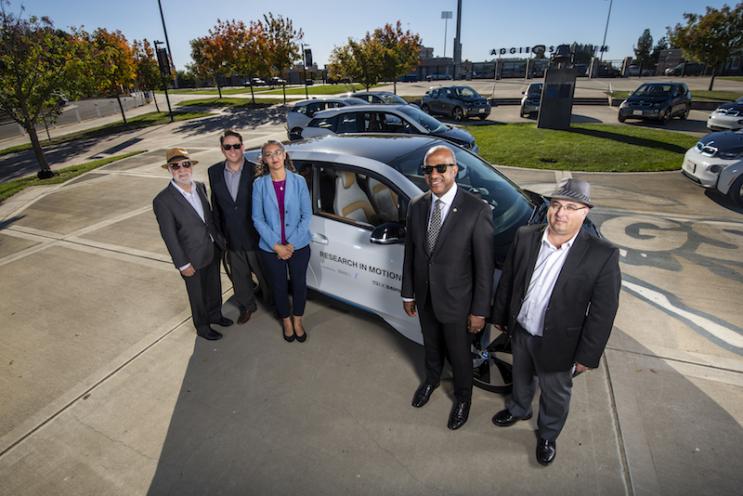
From left, ITS-Davis Director Dan Sperling, BMW’s Monterey Gardiner, PH&EV Research Center Project Director Dahlia Garas, UC Davis Chancellor Gary S. May, and PH&EV Research Director Gil Tal in front of one of the 10, all-electric i3 BMWs UC Davis is using to study fleet integration. (UC Davis)
Ten electric vehicles from BMW are helping the University of California, Davis, study how to integrate electric vehicles into its fleet.
BMW is providing the Institute of Transportation Studies at UC Davis with the all-electric, BMW i3 models for 18 months. Eight of the pre-owned vehicles will be available soon for UC Davis faculty and staff to rent through the campus’s UC Drive program, which is managed by the Fleet Services department. The other two will be used by project researchers.
“Every one of these will replace a gasoline car in the fleet now,” said Gil Tal, director of the Plug-In Hybrid & Electric Vehicle Research Center at ITS-Davis. “We’re trying to swap out some of those miles for electric miles.”
UC Davis a living lab
Transitioning fleets to electric vehicles helps advance clean energy technologies and reduce emissions from transportation. With UC Davis serving as a living laboratory, the project can help inform other campuses, small cities and towns about what to expect when integrating electric vehicles into fleets. It can also help familiarize potential electric vehicle drivers with the vehicles, with little commitment.
The vehicles are 2015-2016 models, with battery technology that enables an everyday range of about 80-90 miles — ideal for in-town driving, and enough for travel between Davis and Sacramento.
Dahlia Garas, program director of the Plug-In Hybrid & Electric Vehicle Research Center, said the project has four main components. “We’re trying to help the campus electrify,” she said. “We also want to learn how fleets can incorporate used electric vehicles, which are available at a lower price than newer generations. We are learning more about how to integrate electric vehicles with the grid.”
The final component is understanding users and their experience with the vehicles. Center researchers will be conducting education and outreach with campus departments and UC Drive participants to teach them how the cars work. They will also conduct surveys to determine how people’s opinions change about electric vehicles before and after driving one.
The road to sustainability
“We’re moving toward a transportation system of reduced personal car ownership,” said ITS-Davis Director Dan Sperling, whose book Three Revolutions describes a three-pronged approach to sustainable transportation that involves integrating electrification, ride-sharing and autonomous vehicles. “This is one slice of conditioning the market, users and institutions like this university to think along those lines.”
As that transportation shift progresses, motor companies are interested in opening up secondary markets for their vehicles.
“We are pleased to be working together with UC Davis in this multifaceted research initiative,” said Simon Euringer, vice president of the BMW Group Technology Office USA. “This collaboration will enable new study of electric vehicle use and charging patterns, generating new insights that will help further our shared aim of making connected electric vehicles more accessible.”
The research also ties into UC’s Carbon Neutrality Initiative, which commits UC to emitting net zero greenhouse gases from its buildings and vehicle fleet by 2025.
“I look forward to driving one of these vehicles myself, joining my UC Davis colleagues in getting behind the wheel for a healthier planet,” said UC Davis Chancellor Gary S. May.
For the link to the UC Davis announcement, and additional photos, click here.
Greenlight Blog: UC Davis’ Robust Presence at the Global Climate Action Summit
UC Davis Transportation Experts Prominent at Verge 18 Conference to Accelerate the Clean Economy

(From left) Gil Tal, Mollie D’Agostino, and Austin Brown
UC Davis will bring research insights to help showcase the future of transportation at this year’s VERGE 18 conference and expo, hosted by GreenBiz. VERGE is “where technology meets sustainability,” making cutting-edge transportations systems central. From October 15th to 18th, thousands of technology, business, government, and academic leaders will gather in Oakland, California for this flagship event. VERGE 18 will actually be three conferences in one, with tracks on energy, transportation, and mobility and the circular economy.
Gil Tal, Director of the Plug-in Hybrid & Electric Vehicle Center will discuss methods for “Turning Electric Vehicles into Grid Resources” on the morning of Wednesday, October 17th. As our energy and transportation systems become more connected, plug-in vehicles offer invaluable grid service, but only if we get the technology and policy right. Dr. Tal will discuss the PH&EV Center’s research findings and how they show the way to better infrastructure.
Also on Wednesday, Austin Brown, Executive Director of the Policy Institute for Energy, Environment, and the Economy, will speak on a panel focused on “How Mobility Services & Cities Can Share Data.” Cities and regions can dramatically improve their transportation planning with insights from new mobility, but technical, behavioral, and contractual barriers have limited the benefits so far. Dr. Brown will present policy options to break this log jam and get the data – and more importantly, the insights – into the decision-making process.
Mollie Cohen D’Agostino, Policy Director of the 3 Revolutions Future Mobility Program, will wrap up the UC Davis contributions on Thursday, October 18th. She will bring the policy research perspective to the panel “How to Balance Self-Driving Safety & Innovation,” sharing insights on how policy can be innovation friendly, but also insist on continuous improvement in safety for pedestrians and bikes.
“If you’ll be at VERGE, we hope you’ll join us for these discussions and move forward the future of the 3 Revolutions – shared, automated, and electric mobility,” said Austin Brown.